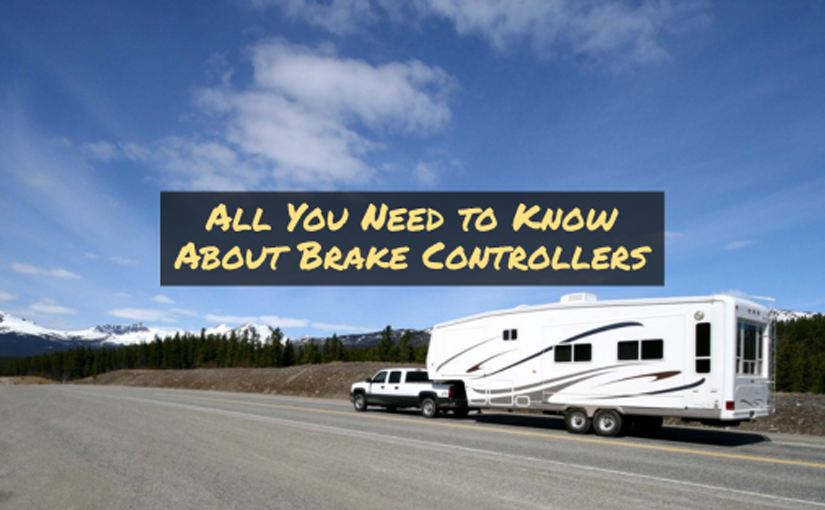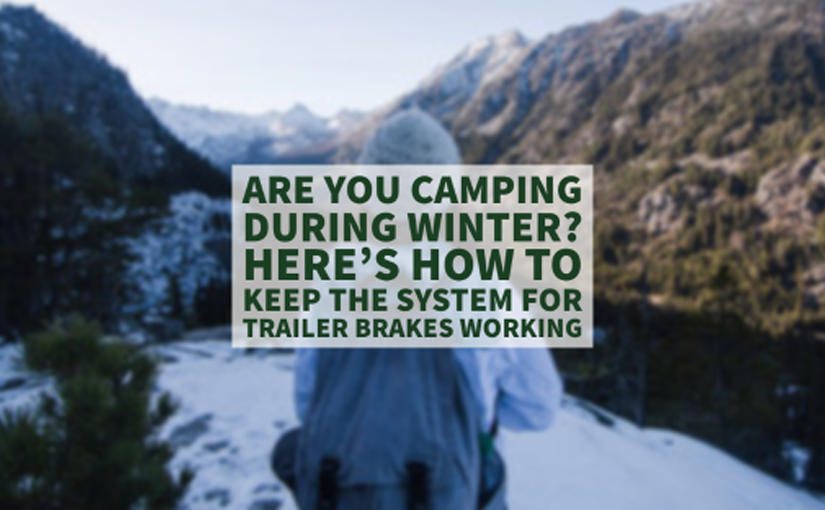
When it comes to towing a trailer, two things are overly important. You need a towing vehicle with enough towing power and efficient trailer brake controllers for towing safety. They’re the reasons why most of the 30 million RV enthusiasts and RV renters in America invest in the best brake controller to enhance towing safety.
Here is what you need to know about trailer brake controllers.
How a Trailer Brake Controller Works
A trailer brake system is installed in the cab of your towing vehicle. It utilizes a trailer brake wiring system that is connected to your vehicle. When you apply the brakes of your towing vehicle, the trailer brake wiring sends an electronic signal to the trailer brakes. This makes the trailer stop in tandem with your tow vehicle.
Resultantly, your trailer will brake smoothly and evenly without jerking. Smooth braking comes in handy when you’re driving on the highway at top speeds, or when towing up and down a hill. The best brake controller will preserve the brakes of your trailer and your tow vehicle. The trailer brake system takes the responsibility of braking instead of your truck’s and trailer’s brakes.
Types of Brake Controllers
Generally, there are two main types of brake controllers:
1.Time-Delayed Brake Controllers: Time-delayed controllers allow you to select how much power is sent to your brakes over a fixed time. When you apply the brakes on your towing vehicle, the time-based brake controller sends an electronic signal to the trailer brakes and activates them. It does so by applying an increasing amount of braking power over a set amount of time. Since time-delayed controllers give you much control over the trailer brakes, they’re ideal for off-road towing.
2. Proportional Brake Controllers: These controllers depend on an electrical circuit referred to as an accelerometer that automatically detects changes in momentum. When you step on your towing vehicle brakes, proportional brake controllers activate the trailer’s brakes with braking power proportional to the vehicle’s momentum. Most people prefer to install proportional controllers because they provide smooth braking and also preserve the health of your trailer’s and tow vehicle brakes.
What Would Happen Without Trailer Brake Controllers?
When you don’t have the best brake controllers installed, your towing truck’s brakes and the trailer’s brakes will be fully responsible for stopping the truck. Without a system to sync the brakes of the trailer and the truck, braking would be uneven, and the chances of your vehicle jackknifing would be high.
For instance, if you’re driving on the highway at top speed and apply emergency brakes, the momentum of the trailer may exceed the force of your truck’s brakes. Therefore, your stopping distance will be increased as the trailer’s force will push the tow vehicle forward as it brakes unevenly. This will cause danger to you and other drivers on the road because your truck will likely bump into the car ahead.
It’s even riskier to drive uphill or downhill without the best brake controllers. Given that many RV enthusiasts enjoy off-road driving when camping or touring, brake controllers are a must-have. You’ll need to brake smoothly when towing on steep terrain without the risk of toppling over or destroying your brakes.
What If You Connect Your Truck’s Brakes Directly to the Trailer?
You may be tempted to directly connect your tow vehicle brakes to your trailer’s brakes and bypass brake controllers. Yes, you’ll have braking power, but to the disadvantage of your truck’s brakes. The connection will supply your trailer’s brakes with maximum braking power every time you apply the brakes. In the long run, the brakes will wear out and you’ll have to replace them.
Brake controllers are responsible for increasing towing safety by facilitating even and smooth braking. Besides increasing towing safety, brake controllers prolong the service life of your truck’s brakes. You should invest in the best brake controller that will serve you efficiently for a long time.
Hayes Towing Electronics Products are Proudly Made in the U.S.A. and In-Stock!





